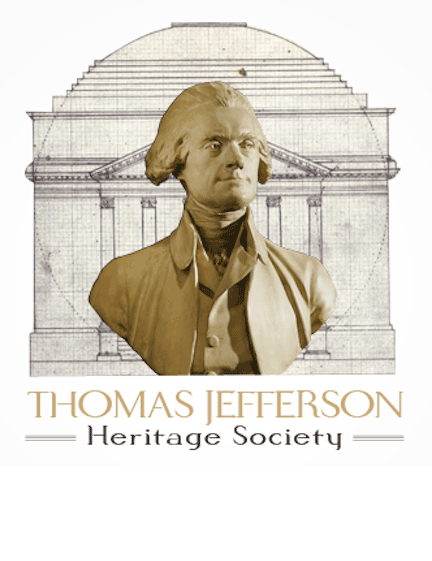Issue of Jefferson's Issue
United Press International
By Craig Shirley
A UPI Outside View commentary Published 6/19/2002 1:27 PM
ALEXANDRIA, Va., June 19 (UPI) -- Sally Hemings, a slave owned by Thomas Jefferson, is rumored to have borne him one or more children as a result of a sexual union between the two that began in Paris while he was U.S. minister to France. The third president's Hamiltonian political enemies promulgated the stories, though it is an open issue as to how many people at the time believed them.
The issue has gained considerable potency of late as Hemings' descendants are asking to be recognized as members of the Jefferson clan.
The Monticello Association, composed of Jefferson's descendants, formed a Membership Advisory Committee to examine the issue in depth. Half the members of the MAC wanted to find a way to grant admission to the Hemings' descendants on the grounds that they were also descendants of Jefferson.
A three-year examination of relevant facts left them unable to prove conclusively that Thomas Jefferson had sired Hemings' children. The MAC's report and recommendations concluded:
"Neither this committee nor the Monticello Association Executive Committee can hope to provide answers to questions which professional historians, genealogists and scientists cannot answer definitively.
"In our opinion, only further historical and scientific research, which discloses new facts, could give a different and more definitive answer to the question."
Hemings' family lore might provide a way for historians to find documentary or secondary evidence, but that record is disputed. The oral history of Eston Hemings' descendants until 1974 said they were descended from a Jefferson "uncle." That year, a book by Fawn Brodie suggested a scenario for a Jefferson-Hemings affair that incorporated some of the oral history of the Hemings and Woodson descendants, along with selected facts out of Jefferson's "Farm Book."
The original DNA study conducted by retired pathologist Eugene Foster found no matches out of six Woodson tests and one match for Eston Hemings out of three Hemings' tests. The one positive test was identical to 25 Jefferson family members living in Virginia at the time, meaning that there is only a 4 percent chance that Thomas Jefferson fathered Eston Hemings, let alone her other children.
This measure is just too small to be statistically significant.
Jefferson was 64 years old when Eston was conceived, and there were at least five other Jefferson males between ages 14 and 27 residing at or near Monticello.
The Monticello Association is being criticized for what Hemings supporters call a double standard. The association requires acknowledgment by the parents that the applicant for membership is their child and their relationship is documented in the "Collected Papers" -- records of each descendant and their relationship to Jefferson's daughters; the third president had no sons.
Generally, this is confirmed by other descendants of that generation. Neither Jefferson nor his daughters admitted to a relationship with Hemings, let along the existence of children.
It is necessary to find a way to verify the Hemings oral history if the criteria for membership in the Monticello Association is to be expanded to include the Hemings' descendants.
Under the existing framework, that would be some form of acknowledgment from the parents or other credible witness. It is not known whether Sally Hemings could read or write; however, other slaves at Monticello could -- including Sally's brother John, a Jefferson correspondent. It was possible for the Hemings children to have written something about Thomas Jefferson as their parent, but no one has yet to produce a document where they did.
In 2001, the Scholar's Commission on the Jefferson-Hemings Controversy, an independent group of distinguished senior professors -- all Ph.D.'s and many who are chaired professors at their universities -- issued a 560-page report concluding that there was not enough evidence to determine if there was a relationship between Thomas Jefferson and Sally Hemings.
After reading the report, members voted 67 to 5 against liberalizing criteria for membership in the Monticello Association. There is no evidence anywhere of either Jefferson or Hemings acknowledging Jefferson's paternity of these children.
This decision was not based on race, as some have asserted. It would have been shockingly out of character for Jefferson to have sexually exploited a 13- or 14-year-old child whom he owned and to conduct such a relationship under the eyes of his daughters and his 11 grandchildren. In his Notes on the State of Virginia, he singled out for particular criticism the sexual exploitation of slave women, which he described as "unremitting despotism" by the master and "degrading submissions" by the victim. He condemned in particular the effect of such behavior on the master's children.
Many people believe that rewriting history might give African-Americans a better connection to our past, allowing them to feel better about the future. Many of the members of the association who voted against changing the membership rules work daily to improve race relations in their local communities.
If science or history eventually provides conclusive evidence, the Monticello Association has stated it will accept Sally Hemings' descendants with open arms. Up to now, the case cannot be proven according to the existing standards of the association.
Until the case can be made under the current criteria, the Monticello Association should not sacrifice Jefferson on the altar of political correctness, ignoring science and the historical record in the face of modern political pressure.
Defenders of Thomas Jefferson should take some pride in the fact that the family had the courage to accept the consequences of their decision. Thomas Jefferson would be proud, too.
Craig Shirley is a Washington, D.C.-area public relations consultant
Copyright © 2001-2003 United Press International

